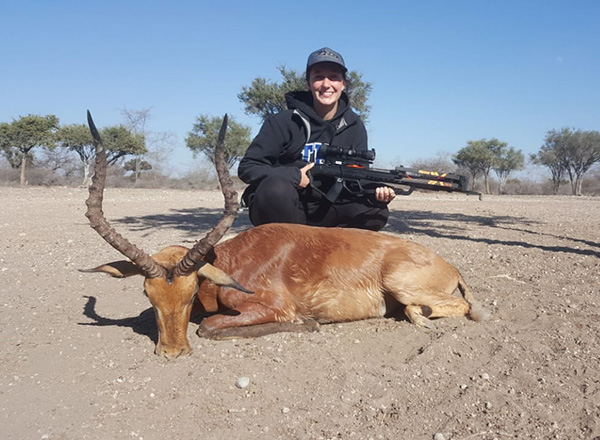
As hunters, we always say that there is so much more to the hunt than the kill and having a first-time hunter come along to experience the thrill of the chase will help prove that. Mentoring a new hunter to not just know how to do it, but to respect our wildlife resources, is one of the greatest things you can do. Here are more skills that a new hunter might develop:
5. Overcoming Nerves
It happens in sports, when we have to speak publicly, and especially when wild game is close by. This is where new hunters will find out that there is a lot more to archery than just drawing back the bow, and a lot more to big game hunting than what they learned at hunter safety.
One of the most interesting occasions can come from the duck blind or the pheasant field. A newbie can practice, consider all the possibilities, and dream of the shot forever. You're stuck in waiting mode, and the butterflies start to flutter.
When there's a bird right in front of you and it bursts into flight, there's really nothing to prepare you and your body for a proper reaction.
You will have to learn to control your mind and body right from the start, and there's no hunter education course that can replicate it.
4. Making Quick Decisions
Hunting is one of the greatest ways to learn the importance of the split-second decision, and hunters are some of the best at it.
The decisions you need to make while hunting can include whether or not to take a passing shot at a teal or wood duck, when to draw your bow or shoulder your firearm on a deer or decide if that flushed bird is a rooster or a hen.
Let a new hunter know that they have many more hunts ahead of them, and that their first time is just a small percentage of the sportsman lifestyle they have left.
Sometimes we talk about deer camp like it's some precious club, but it should be inclusive as well. Our hunting community of family and friends provides a special sort of fellowship that adds a lot to the experience.
A new hunter should experience the way we playfully dig at each other, argue about tactics and gear, and root for each other's success. There is nothing like the camaraderie of hunting. It creates a narrative that will last a lifetime and bond us to each other, even if we started out as strangers.
The hunting fraternity is a mutual support team that transcends other normal boundaries, and we welcome any new hunter that wants to participate in it.
The bottom line is that once you have experienced it, you'll never be a part of a warmer and humbler group of people in your life.
2. Learning From Failure
We have to walk before we can run, crawl before we can walk, and spook a few deer before we ever get a shot off. If experience is the best teacher, then experience should take a few lessons from hunting.
Want a first-time hunter to get a good dose of failure? Then try some pass shooting over decoys on the big water.
Want to get them questioning their own sanity? Then take them grouse hunting. Watch them look at their disappearing shotshells and wonder if they are shooting blanks. The same goes for woodcock or quail. It can be humbling.
The thing is that failure is quite possibly the best learning tool that we have. We can let it take us down or try harder the next time around. An empty bag or an unpunched tag is a great teacher.
1. Valuing Success
Seeing success, especially early in hunting, tells us that we're doing something right and heading in the right direction. It may start out as a successful shot on a deer, but it always leads to the desire to replicate.
A big part of hunting success comes from good preparations. Scouting, planning, and not disrupting hunting areas can further the early education of a new hunter and teach them that there's more to it than pulling the trigger.
Portions of this article originally appeared on the Wide Open Spaces website.